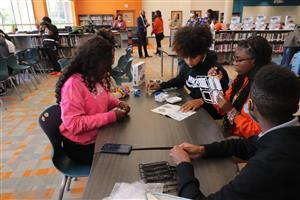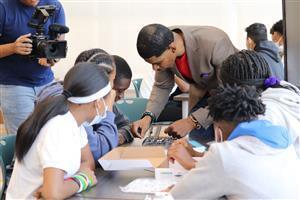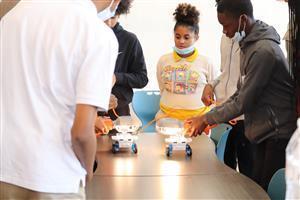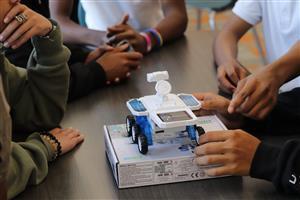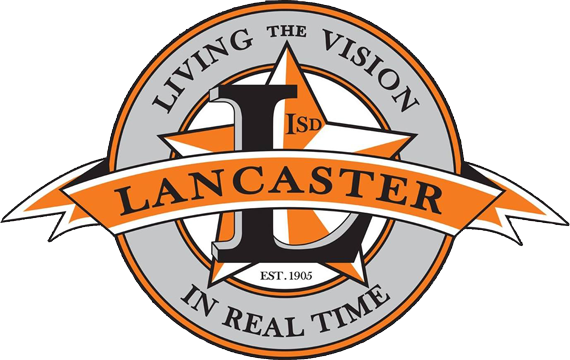A group of Lancaster Middle School eighth-grade scholars put their STEM skills to the test in a unique engineering workshop hosted by Dallas native and Assistant Vice President of Automation for AT&T, David C. Williams.
Williams brought his special solar energy workshop to the school and embraced students interested in learning more about his career and how STEM education is important.
The students were split into groups and challenged with building a solar-powered robot. Three teams of five students were in an intense competition to complete their robotic car first. Students were given minimal instruction before starting their builds. Williams believes his in-person visits are a learning experience that allows students to solve problems and connect to how STEM is used in the real world.
"I created these workshops to show students how to value their ingenuity so they can excel in their careers," said Williams. "When I share my story with the students, I want them to know there are no limits to what they can achieve. Focusing on STEM subjects and mastering them will help students immensely as they enter the workforce."
After finishing their robots, students set up their robotic cars on tables in the library and used special halogen lights as their solar source to get the cars moving. But the robots seemed to crawl slowly down the table despite having a powerful light source. Williams then challenged the students to brainstorm ways to make the robots move faster. Using skills learned in their classes, students removed excess pieces, knowing the lighter weight would make their robots zoom down the table during the next race.
Lancaster ISD Chief Academic Officer, Dr. Marcus Jackson, says the lessons learned from the workshops provide immeasurable benefits to the students.
"As students advance through high school, they'll encounter various problems," said Jackson. "They will need to utilize critical thinking to solve those problems and find solutions to future problems. This workshop is an excellent opportunity for students to collaborate and enhance teamwork skills they will use throughout their lives."
Lancaster Middle School eighth-grade science teacher, LaTanya Spragin, shared the same sentiments.
"The students are used to being challenged in their science classes. We provide the materials, and it is a great way to boost their critical thinking skills because they have the opportunity to apply what they've learned in class in this workshop. They are learning to figure out problems, and that's rewarding to watch as their science teacher," she said.
Lancaster Middle School eighth-grader, Yolanda Williams, says the workshop reinforced lessons she's learned in her science classes.
"Figuring out how to make the cars move faster directly ties into what we learned about Newton's Second Law of Motion, which is force equals mass times acceleration," said Williams. "If my team hadn't known about that law, improving our robot would have been difficult. This experience has improved my teamwork skills and taught me how to reconstruct something or find different ways to improve it."
For other students, like Richard Hewitt, bragging rights from the competition was all the motivation his team needed to build their solar-powered robot.
"As soon as Mr. Williams announced we were racing the other teams, I knew I wanted to help my team come in first," said Hewitt. "We communicated and relied on each other's abilities, and we were able to finish building our robot first. Even though we lost the final race, my team still learned about solar energy and kinetic energy."
David C. Williams has been hosting the solar robot workshops since 2021. He travels worldwide, working with and inspiring students in underserved communities. He has previously partnered with Lancaster ISD during the 2021-2022 school year, bringing his solar robot workshop to a group of Rolling Hills Elementary third-graders.
